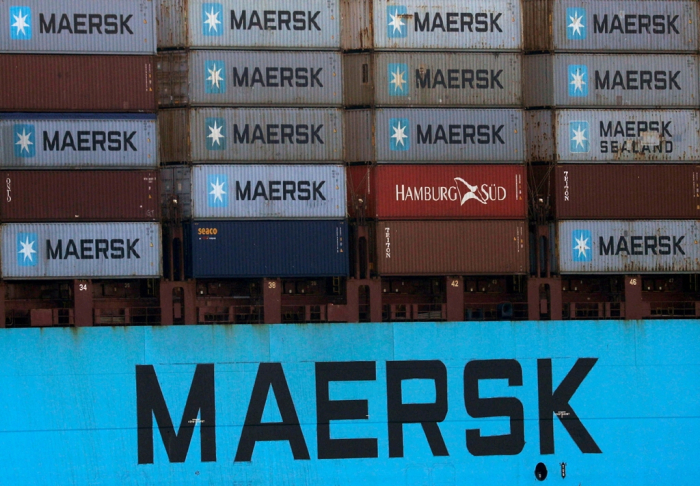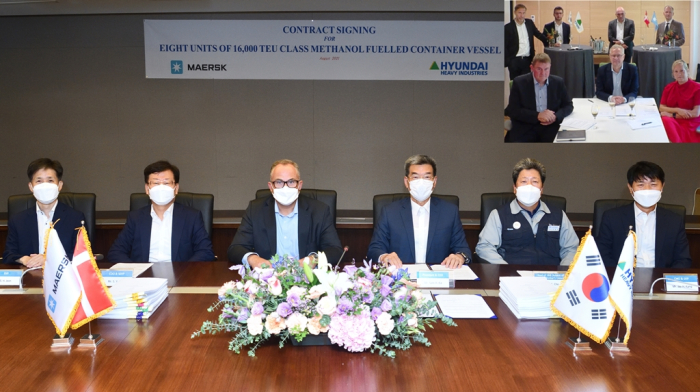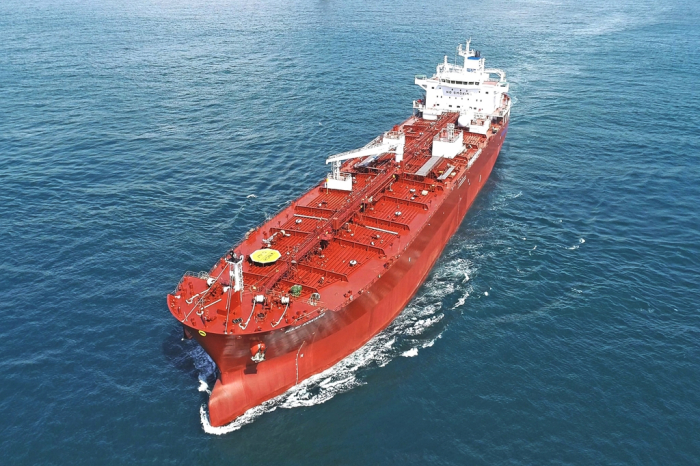Shipping & Shipbuilding
KSOE in $1.4 billion deal to build 8 methanol-powered ships for Maersk
The deal comes as global shipbuilders and shipping firms are required to comply with tighter carbon emission rules
By Aug 24, 2021 (Gmt+09:00)
2
Min read
Most Read
LG Chem to sell water filter business to Glenwood PE for $692 million


Kyobo Life poised to buy Japan’s SBI Group-owned savings bank


KT&G eyes overseas M&A after rejecting activist fund's offer


StockX in merger talks with Naver’s online reseller Kream


Mirae Asset to be named Korea Post’s core real estate fund operator



Korea Shipbuilding & Offshore Engineering Co. (KSOE) said on Tuesday it has won a 1.65 trillion won ($1.42 billion) order to build eight methanol-powered containerships for Denmark’s A.P. Moller-Maersk.
The 16,000 twenty-foot equivalent unit (TEU) ships will be the world’s first large-size vessels to be powered by the non-carbon fuel.
KSOE, the intermediate shipbuilding holding company of the Hyundai Heavy Industries Group, said the ships will be delivered to Maersk, the world’s top shipping company, by 2024.
The deal also includes an option to build four additional such vessels, it said.
Currently, about 20 ships with methanol engines are in operation and a third of them are manufactured by KSOE.
KSOE has three shipbuilders under its wing – Hyundai Heavy Industries Co., Hyundai Samho Heavy Industries Co. and Hyundai Mipo Dockyard Co.
The Korean shipbuilding group entered the methanol-fueled vessel construction business in 2016 when Hyundai Mipo built two such vessels for the first time in the industry.
In June of this year, Maersk ordered a 2,100 TEU ship with a methanol engine in a pilot project from KSOE.

MOVE TO CUT CARBON FOOTPRINT
With major economies around the world attempting to cut emissions in order to meet net-zero targets, the shipping sector has been looking for ways to cut the environmental footprint of its operations.
Methanol has been a less favorite fuel for ships because of higher production costs. With increased natural gas production globally, however, demand for methanol-powered ships is increasing in line with tighter environmental regulations by the International Maritime Organization (IMO).
Methanol is also easier to store, transport and handle compared to other emission-free fuels such as liquefied natural gas (LNG).
The IMO requires its member states to cut carbon emissions from ships by 30% of their 2008 levels by 2025 and raise the target to 70% by 2050.
In June, the IMO also introduced the Carbon Intensity Indicator (CII), under which its member countries are required to lower their carbon emissions from ships by 2% every year from 2024 to 2016 compared to the 2019 levels.

NEW ECO-FRIENDLY TECHNOLOGY
Korea’s three major shipbuilders – KSOE, Daewoo Shipbuilding & Marine Engineering Co. and Samsung Heavy Industries Co. – have actively engaged in the development of eco-friendly ships to join the country’s goal of achieving carbon neutrality by 2050.
KSOE is developing a green hydrogen ship equipped with a hydrogen fuel cell engine.
Daewoo and Samsung are working on ammonia-powered vessels.
Samsung Heavy said last week it obtained a certificate from DNV, a Norwegian certification company, for its design to revamp an LNG or diesel-powered crude tanker into an ammonia-fueled vessel.
Samsung said it aims to commercialize ammonia fuel propulsion ships by 2024 by developing its own ammonia fuel supply system.
With about 90% of world trade transported by sea, global shipping accounts for nearly 3% of the world's CO2 emissions, according to industry data.
Write to Jeong Min Nam and Jung-hwan Hwang at peux@hankyung.com
In-Soo Nam edited this article.
More to Read
-
 Shipping & ShipbuildingKorean shipbuilders find relief in falling iron ore prices, rise in new orders
Shipping & ShipbuildingKorean shipbuilders find relief in falling iron ore prices, rise in new ordersAug 23, 2021 (Gmt+09:00)
2 Min read -
 Shipping & ShipbuildingKorea’s big 3 shipbuilders aim to hike newbuilding prices
Shipping & ShipbuildingKorea’s big 3 shipbuilders aim to hike newbuilding pricesAug 02, 2021 (Gmt+09:00)
3 Min read
Comment 0
LOG IN


